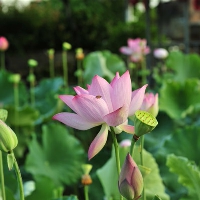How does Sanmenxia register for the adult college entrance examination?
Sanmenxia examinees visit the "Henan Provincial Education and Examination Institute website", log on to the "Henan Adult College Enrollment Candidate Service Platform" to understand the relevant requirements, adult college enrollment policies and regulations, read and sign the "Henan Adult College Enrollment Candidate Commitment" before entering the online registration stage.
Candidates who choose the place designated by the enrollment and examination institution in their place of residence for information review shall have a Residence Permit of Henan Province in their place of confirmation if they choose a place other than their place of residence for information review. After completing the information filling and uploading the materials, the examinee enters the information check page, and submits the information for review after checking. Registration information cannot be modified after submitting information.
The online payment can only be made after the examinee's information is approved. The online payment of this registration adopts scanning code payment, which supports scanning code payment methods such as Alipay, WeChat, and Cloud Flash, making payment more convenient. After paying, the examinee needs to click "Payment Succeeded" to confirm the payment result. After confirming the payment, the online registration is completed. If the fee is not paid within the specified time, the application will be deemed invalid.










